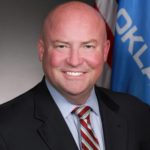By Oklahoma Institute for Child Advocacy CEO Joe Dorman
When I heard the news of the death of former President Jimmy Carter, I was reminded of a statement he made 10 years ago during his announcement that he was battling brain cancer. He was asked if he would have done anything different in his life. I was surprised by his response.
“I wish I’d sent one more helicopter to get the hostages and we would have rescued them, and I would have been re-elected,” Carter said.
By the way he responded, you could tell that decision weighed heavily on his heart. I hope that this did not haunt him, but I also know with politicians, due to the nature of their decisions which sometimes impact millions of people, they often struggle with making the best choice for most people with the least harm to those they represent.
Former Gov. George Nigh often says that based upon the information that he had at the time, he felt that each decision he made was the correct one in that moment. Now, information can change and provide a different outlook in the future but knowing that you did the best you could with what you had certainly makes it easier to not dwell on those decisions.
Every person has some situation which at some degree plagues them, a “what-if” scenario that either is a whisper at the back of their mind or that completely disrupts their life. If it is the latter, let this be a suggestion for considering a conversation with a therapist to discuss how this has impacted you and a way you can move past that tribulation. It is important to seek help for something which causes you to dwell in the past and what might affect your current personal or professional well-being. I am not embarrassed to share that I sometimes visit with a therapist when I feel pressure, and this provides significant relief. I have also found that it helps to visit with people who you have “wronged” in some situation to enable that healing, hopefully on both sides.
Facing regret in a healthy way is critical to growth, healing, and hopefully prosperity.
I have thought about what my “helicopter moment” might be, and I am fortunate that I cannot point to a major one. I can certainly think of several choices I have made which I wish that I had handled differently, but nothing as significant as President Carter. Personally though, I wish that I had developed a better work/life balance in my earlier years as I am a “workaholic” and have often spent far too much time with my job instead of building a better equilibrium. With that regret, I do balance it with the opportunities to do good that I have been afforded, and, to me, that certainly helps.
I provide this bit of advice to those policymakers who are about to start making decisions for the people with their votes: before deciding on legislation, put thought into the consequences and outcomes for all those impacted.
Additionally, no vote is worth keeping your elected office. If it goes against what you believe is “right” at your core, you must be able to look at yourself in the mirror long after you leave your position. But also, do not be afraid to grow as a person, as sometimes you learn from others and your views (and vote) might change. Finally, dedicate time to friends and family as it is easy to lose touch with them while serving in an office.
Your “helicopter moment” could come at any moment, so do your best with what you have so as to hopefully avoid that regret.


